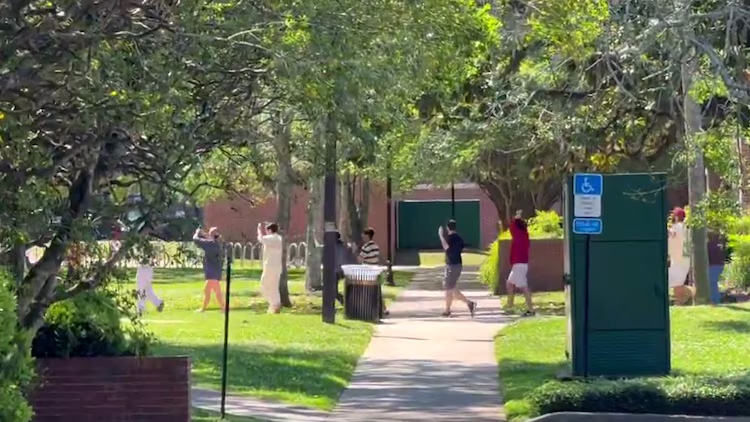Loss of COVID-19 funding for federal program could have ripple effects on Texas Health care systems

HOUSTON, Texas (KTRK) -- The NAACP Houston charter is sounding the alarm on the loss of COVID-19 federal funding, which can impact millions of Texans who do not have health coverage.
On March 22, the U.S. Health Resources and Services Administration stated its 'Uninsured Program' would no longer accept reimbursement claims from health providers, which covers the cost of COVID testing and treatment for patients without health insurance.
By April 5, the same will be applied for claims regarding COVID vaccines, as noted on its website.
Dr. Joseph Gathe Jr., a private practice infectious disease physician and chairman for the NAACP Houston Health Committee, said this will impact how many patients decide where to get care or to even go get care at all.
"We are going to be relying now on our Houston Health Department, that's done a yeoman's job," Gathe said. "That's our safety net. The net can only hold so much. They'll be able to help with vaccines and testing, but they don't have access to treatments. They don't have access to hospitalizations and things like this, so it's imperative that we get this funding."
The NAACP Houston Branch is urging the Harris County congressional delegation to continue funding COVID medical treatment and vaccination for the uninsured. The local organization held a virtual 'call to action' meeting Thursday night in hopes of spreading awareness.
"To sound the alarm, to get the word out that we need to get these funds reinstated so that we can continue the care that we are giving to people with COVID," said Gathe.
Texas leads the nation with the highest uninsured population of 18.4%, according to the latest available U.S. Census Bureau data.
This is partly due to failing to expand Medicaid, under the Affordable Care Act, creating a significant coverage gap. According to the Texas Medical Association, roughly five million Texans did not have health care coverage before the pandemic hit in 2020. In those two years, that number likely increased.
"Many employers had to close up shop or reduce their own expenses, so any individual who had coverage through their employer lost it," said Dr. Linda Villarreal, MD, president of the Texas Medical Association (TMA).
Dr. Brian Reed, a family physician and professor and chair of Clinical Sciences for the University of Houston, said the first step is to understand the racial and ethnic inequity within health care systems and how it impacts our community.
"In Houston and Harris County, we see more Black and Hispanic or Latinx individuals who are uninsured and so they carry the burden of that and it ends up harming all of our communities," Reed said. "When people aren't able to work because of their disability or delays in care. That affects us. It also leads to higher insurance costs for all of us. Longer ER wait times, because that's where people are going to get care, so it's not necessarily an individual impact thing. It's really a community impact."
Villarreal encourages all patients to seek health care where they can and apply for available coverage. She also said it's important for patients to contact their legislatures and share their stories about what's it's like trying to find affordable, accessible health care.
"Access and converse with your legislatures," Villarreal said. "Share the stories that they've experienced or perhaps of that their doctors who've had to close up, close shop, close the doors or reduce hours. Advocacy on the part of our patients is the best way to communicate with our legislatures."
For more on this story, follow Roxie Bustamante on Facebook, Twitter and Instagram.










